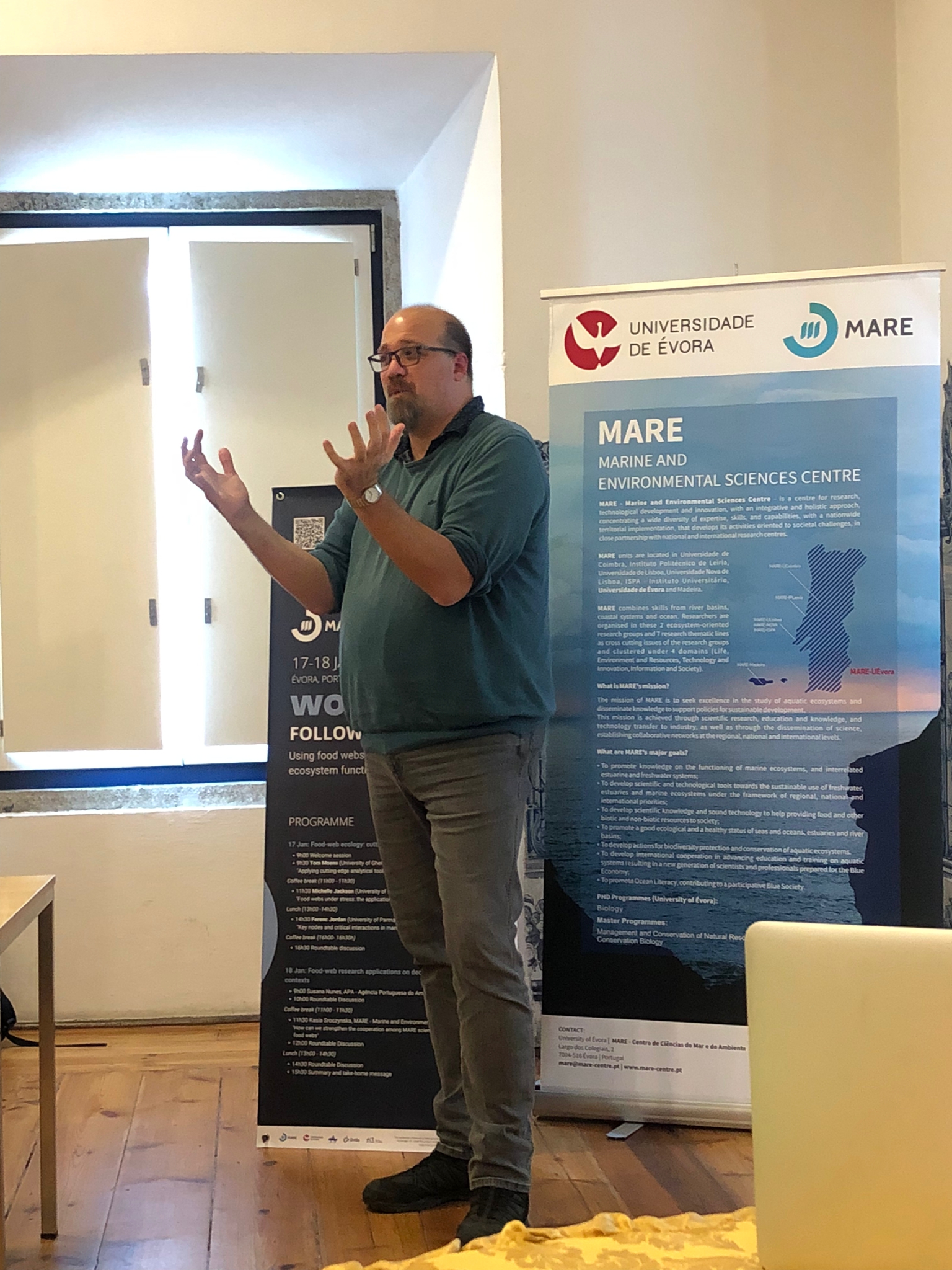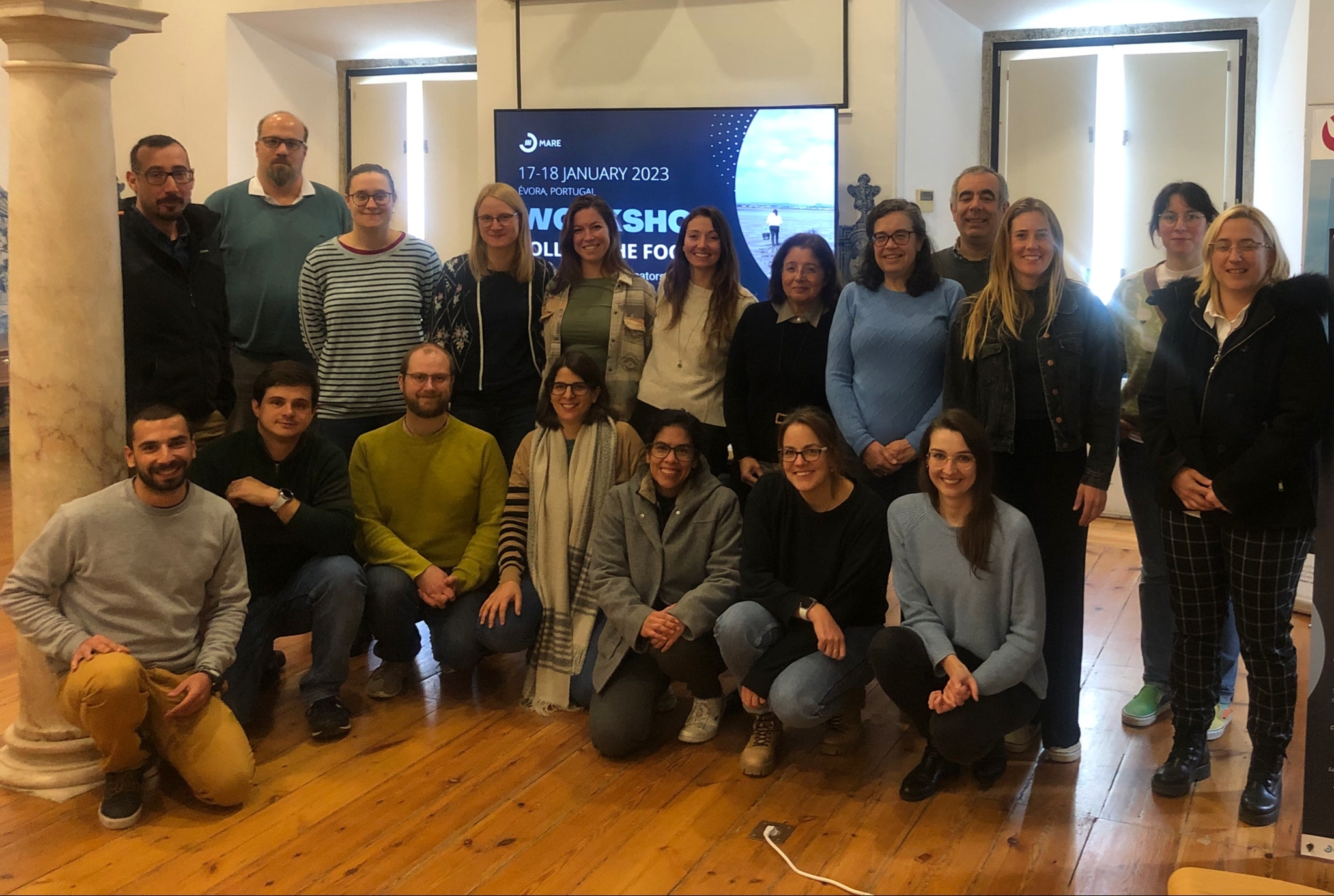Workshop “Follow the food! Using food webs as indicators of ecosystem functioning” has finished

On January 17th and 18th, The University of Évora hosted the Workshop “Follow the food! Using food webs as indicators of ecosystem functioning”. The event gathered specialists working on different aspects of food web ecology and discuss the current and future state of food webs in the context of the indicators of “Good Environmental Status”. The aim of the workshop was to strengthen the cooperation between scientists from different areas (modelling vs empirical approach vs ecosystem perspective) to produce more integrative data that will better assist in delivering process-based indicators, capable of capturing multiple anthropogenic pressures.
The first work day was dedicated to the presentation and discussion of different advanced methodologies in the study of food webs, including methodologies focused on stable isotope ecology and modelling. Tom Moens, University of Ghent, Michelle Jackson, University of Oxford and Ferenc Jordán, University of Parma, were the invited keynote speakers.
The second day was directed towards the discussion between the link of research methodologies with the evaluation of the ecological state of aquatic ecosystems food webs, needed for the application of European Directives. This discussion was enriched by the guest speaker Susana Nunes, from the Portuguese Environmental Agency and Portuguese representative of ECOSTAT (Water Framework Directive Common Implementation Strategy Working Group on Ecological Status).
The workshop had a strong discussion component, with various roundtable sessions, in order to strengthen the cooperation between researchers of different areas (modelling vs empirical approach vs ecosystem perspective).
Principal conclusions from the workshop emphasized the need for complementary use of different tools such as stable isotope analysis and ecological network models for more realistic image of the state of food webs under anthropogenic stress. Also each tool or combination of tools have to suit to the specific problem as well as its spatial and temporal range. Additionally, it was strengthen that the cooperation between stakeholders and policymakers has to be established already at the very early stage of the scientific project proposal for better use of scientific knowledge for bio assessment purposes.
The workshop was coordinated by Kasia Sroczynska and Helena Adão, researchers of MARE – University of Évora, as well as Sofia Henriques, MARE-University of Lisbon, as part of the projects: D4Ss - “Food-web approaches to assess the functional benthic ecosystem interactions for Marine and Coastal management under the Marine Strategy Framework Directive” and MARE MiniGrants 2021.

